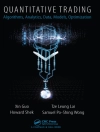As a broad introduction to the history of economic thought – based on courses the authors have taught for many years – this book provides a magisterial overview for students and teachers who have not had the opportunity to cover the development of the field of economics in its historical context.
The text is presented as a series of twenty-four lectures, which can be used as the basis for self-study or for the delivery of a course. Each lecture presents an outline of aims, a select bibliography, a chronology, an overview of between 3, 000 and 4, 000 words, and questions for further study or reflection.
Contemporary understanding of economic principles sheds little light on the manner in which past thinkers thought, so the reader is provided with the much-needed context behind the development of ideas, as well as being guided through the original writings of economists such as Smith, Jevons, Marshall, Robbins, Keynes and others. The emphasis is on the broad developing stream of economic argument from the seventeenth century to the present, seeking to emphasize a diversity that is sometimes suppressed in more conventional textbooks, which tend to organize their histories into sequences of schools of thought.
Backhouse and Tribe bring their considerable insight and knowledge to bear on the text, having honed their presentation to the needs of those with no previous background in the subject, without sacrificing analysis or rigour. The book will be warmly welcomed by students and teachers alike.
Inhoudsopgave
Introduction
1. Commerce, wealth and power: the disputed foundations of the strength of a nation
2. Natural order, physiocracy and reform
3. Adam Smith I: outline of a project
4. Adam Smith II: the two texts
5. The political economy of Malthus and Ricardo
6. Political economy in continental Europe and the United States
7. Political economy, philosophic radicalism and John Stuart Mill
8. Popular political economy: List, Carey, Bastiat and George
9. Radical political economy: Marx and his sources
10. Marginalism and subjectivism: Jevons and Edgeworth
11. From political economy to economics
12. Alfred Marshall’s project
13. Microeconomics after Marshall
14. Monetary economics
15. The rise of mathematical economics, 1930-60
16. Robbins’s Essay and the definition of economics
17. John Maynard Keynes
18. Quantitative economics
19. The Keynesian revolution
20. Modern macroeconomics
21. Inflation and the Phillips curve
22. Popular economics
23. Economics and policy
24. Ideology and place
Over de auteur
Keith Tribe taught economics at Keele University in the 1980s and 1990s before taking early retirement in 2002. Since then he has continued to write, translate and teach. He is currently teaching the history of economics at the University of Birmingham. His books include Governing Economy (1988), Strategies of Economic Order (1995/2007) and The Economy of the Word (2015).












